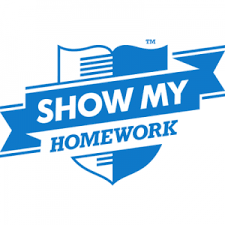English
Curriculum Intent
The aim is for all students to:
- Be challenged and engaged by a curriculum that enthuses students and staff whilst fostering a love of language and literature;
- Develop the habit of reading widely and often, for both pleasure and information with fluency and understanding;
- Acquire a wide vocabulary, an understanding of grammar and knowledge of linguistic conventions for reading, writing and spoken language;
- Write clearly, accurately and coherently, adapting language and style in and for a range of contexts, purposes and audiences;
- Be competent in speaking and listening, using discussion to enhance learning and enthusiasm for English;
- Access all aspects of the curriculum and learning, specifically through adjustments to teaching and learning for SEND learners.
The courses taught within each Key Stage are outlined below. If you have any further queries, please email englishdept@southwolds.uk
Please note that this email address is not monitored daily but we will endeavour to reply within 3 working days.
KS3 English
Course Overview
Students are taught in ability groups for 7 hours a fortnight. Students study a broad and engaging curriculum which consolidates and builds on the skills and knowledge acquired in Key Stage 2. Learners will take part in a variety of speaking and listening, reading and writing activities.The key modules of learning are as follows:
- Journeys – an introduction to English at The South Wolds Academy, concluding in students producing a piece of autobiographical writing
- The Boy in the Striped Pyjamas – a modern novel by John Boyne
- The BIG Persuade – a study of rhetoric in the media, speeches and other non-fiction; creation of own Dragons’ Den product and pitch
- Character Poems – reading of poetry from past and present, looking at the presentation of people and power
- The Tempest – drama by William Shakespeare
Pupils will complete 5 summative assessments throughout the year that will include reading or literature essays, creative writing pieces and a formal presentation. Alongside their graded assessments, and more importantly, students will regularly receive formative feedback on assessed work in a variety of ways:
- Teacher feedback – verbal, whole class feedback and written feedback from their teacher with clear targets to guide improvement
- Self-assessment and peer assessment
In Year 7, we expect students to complete around 20 minutes per week. All homework tasks are published on the online platform of ShowMyHomework (SMH). We deliberately organise homework to be varied so as to consolidate learning in the classroom, develop skills and to promote enjoyment of English and reading for pleasure. Homework may include the following:
- Quizzes on SMH
- Spelling tests on SMH
- Reading of prose and non-fiction
- Comprehension questions to support with development of reading skills
- Research tasks to support with learning in the classroom, especially when looking at texts in context
- Creative writing tasks
- Extension of tasks completed in lessons
- Encourage your child to read at home and discuss what they are reading. Reading together and sharing ideas can be rewarding and promote higher levels of engagement as well the essential benefits to students in terms of their own literacy skills. Please see below for some inspiration on good reads for children and young adults.
- Speak with your child about the targets they have been given and encourage them to work on improving on these in class and at home.
- Check ShowMyHomework and the nature of homework your child is completing, reviewing what they do and asking them about it.
- Encourage the writing of stories, poems and blogs.
- Go to your local library and encourage them to use the facilities.
KS4 English
Course Overview
Students are taught in ability groups 9 hours a fortnight. We follow the AQA specifications for GCSE English Language and English Literature: https://www.aqa.org.uk/subjects/english/gcse
The exams in a nutshell:
|
||||
|
The key modules of learning in Year 10 are as follows:
- Macbeth – drama by Shakespeare for GCSE English Literature (exam text)
- Creative writing – students will develop and improve their descriptive writing skills
- AQA Anthology Power and Conflict Poetry – students continue their study of poetry for GCSE English Literature (exam text)
- Opinion Writing – students master their ability to present their viewpoint and ideas in writing
- English Language Paper 1: Section A Reading
- Interleaved revision of exam texts throughout year
The key modules of learning in Year 11 are as follows:
- A Christmas Carol – 19th Century Novel by Dickens for GCSE English Literature (exam text)
- English Language Paper 2: Section A Reading
- Interleaved revision of Literature exam texts and Language throughout year
Assessment
The frequency of assessment changes as students move into Key Stage 4 and will comprise of class-based assessment and formal mock exams sat as a year group. Alongside their graded assessments, and more importantly, students will regularly receive formative feedback on assessed work in a variety of ways:
- Teacher feedback – verbal, whole class feedback and written feedback from their teacher with clear targets to guide improvement
- Self-assessment and peer assessment
Students complete all their work in the English books and all feedback and improvement work is contained within these.
Homework
In Years 10 and 11, we expect students to complete around 45-60 minutes per week. All homework tasks are published on the online platform of ShowMyHomework (SMH). We deliberately organise homework to be varied so as to consolidate learning in the classroom, develop skills and to promote enjoyment of English and reading for pleasure. Homework may include the following:
- Quizzes on SMH
- Reading of prose and non-fiction
- Comprehension questions to support with development of reading skills
- Research tasks to support with learning in the classroom, especially when looking at texts in context
- Creative writing tasks
- Extension of tasks completed in lessons
- Revision activities
How to Help
- A student having their own copies of exam texts for GCSE English Literature is invaluable: it provides the opportunity for re-reading, supports with revision and can be brought to lessons and annotated to consolidate learning in class. Any unabridged version is suitable.
| Title | Writer | ISBN of edition Used in School |
| An Inspector Calls | JB Priestley | 978 0435 232 825 |
| Macbeth | Shakespeare |
978 1853 260 353 (For edition that includes modern translation not used in school: 978 1586 638 467) |
| A Christmas Carol | Charles Dickens | 978 1407 143 644 |
- For Literature exam texts, students are provided with Knowledge Organisers. These are important revision resources that include a range of useful references to support with exam revision: text synopsis and sectioned overviews; character and theme lists; key vocabulary and definitions; an extensive range of ‘key quotations’ to support with revision, essay writing and for quotation learning.
- In Year 11, there will be an extensive schedule of opportunities to attend revision sessions after school and during the holidays. Encourage your child to attend these sessions to provide structured opportunities for revision.
- Revision guides and revision workbooks are useful ways to focus revision. For Literature, we recommend the York Notes and CGP revision books (full of ideas and advice) and/or the York Notes and CGP workbooks (activity books that promote more active revision) for Literature. For Language, we recommend Pearson’s AQA GCSE English Language revision and workbook.
- Encourage your child to read at home and discuss what they are reading. Reading together and sharing ideas can be rewarding and promote higher levels of engagement as well the essential benefits to students in terms of their own literacy skills. Please see below for some inspiration on good reads for children and young adults.
- Speak with your child about the targets they have been given and encourage them to work on working towards these in class and at home.
- Check ShowMyHomework and the nature of homework your child is completing, reviewing what they do and asking them about it.
- Go to your local library and encourage them to use the facilities.
Useful websites
KS5 English Language
Qualification studied for: A Level
Length of course: Two years
Examining body: AQA
Number of periods: Nine per fortnight
Entry requirements to this course: Grade 5 in GCSE English Language. A keen interest in words and language. A willingness to undertake independent study and research. An enjoyment of writing. A positive work ethos and commitment to learning.
What will I study?
- Textual variations and representations
- Children’s language development
- Language diversity
- Language discourses
- Writing skills
- Language investigation
- Original writing
How will I be assessed?
Two, two and a half hour examinations (each one is 40% of the A Level). Language in Action - coursework: language investigation and original writing. (3500 words: 20% of A Level).
KS5 English Literature
Qualification studied for: A Level
Length of course: Two years
Examining body: AQA
Number of periods: Nine per fortnight
Entry requirements to this course: Grade 5 in GCSE English Literature and English Language. A passion and enthusiasm for reading literature across the genres of prose, poetry, drama and non fiction. A willingness to discuss ideas about texts and explore interpretations of texts with others. An interest in the influences on writers throughout time. A positive work ethos and commitment to learning.
What will I study?
Love through the ages: One Shakespearean play, one prose text and a collection of poetry.
Texts in shared contexts: study of texts from modern times across prose, poetry and drama.
Independent Critical Study: texts across time, coursework essay exploring two texts of own choice.
How will I be assessed?
A three hour examination (40%) of A Level. A two and a half hour examination (40% of A Level). Independent Critical Study - coursework essay (2500 words: 20% of A Level)







